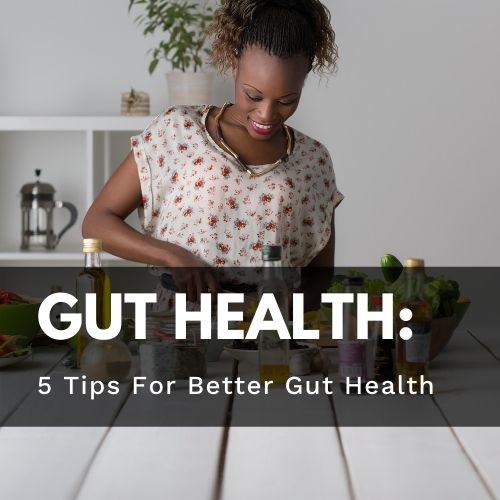Your Cart is Empty
COLLECTIONS:
SPECIAL OFFERS:
LEARN:

Are Naps Healthy? A Sleep Scientist’s Review
December 04, 2017 5 min read
Before Thomas Edison invented the lightbulb, humans slept differently. Without artificial lights to keep us up at night, humans naturally matched their sleep schedule with the sun.
Sleep when it’s dark. Wake up when it’s light out.
Edison changed that.
With artificial light and electricity, we now have a million and one temptations that threaten our sleep quality each and every night.
This leads to decreased sleep quantity and quality. In fact, researchers figure that artificial lights strip each of us between 1 and 2 hours PER night of sleep (source). Thisdecrease in sleep during the night has lead to anincrease of sleep during the day, namely, in the form of daytime naps.
Looking to sleep better? Download our FREE Sleep Diary!
The spontaneous need for a nap is typically attributed to poor or inadequate nighttime sleep. While habitual nappers and athletes are the exception, most of us nap as a means to pay back a "sleep debt" accumulated from sleeping poorly or not enough.
So is napping healthy?
Below, we’ll discuss the pro’s and con’s of napping.

The Benefits of Napping
As mentioned above, one of the major benefits of napping is repaying your sleep debt. The importance of sleep and our ability to function is similar to balancing a checkbook. For every hour you don't sleep (debit), you will have to pay back that hour in the future (credit) if you want to think, speak, and behave 'normally'.
Even if you think that you can short-change sleep, which you can in the short-term, it never works out in the long-term. Your body and brain will need to recover. Your body craves deep, REM sleep. While naps in the face of sleep deprivation can prevent an awful crash, it is best to get optimal sleep at night.
Another benefit of the nap comes from science conducted atHarvard University. Napping improves our ability to learn new information, retain, and later recall this information. It can stabilize our mood, which can help to keep us from over-reacting. It can also help us learn, retain, and refine new motor skills.
The Cons of Napping
Some people are simply incapable of napping. I am one of those people. The brains of some (decaffeinated) people can't wind down and some people's physiologies are just too disrupted by a 20-minute power nap.
For those individuals, taking a nap is going to do more harm than good. It’s going to disrupt your day and mess with your energy levels.
Much of this variation is genetic, the best way to find out is to test yourself. Did you feel refreshed when you wake up from a nap? Or do you feel like you just got hit by a freight train? Let that be your indicator of whether you should nap during the day. If naps aren’t your thing, do your best to get your sleep at night.

Another downside of napping is that napping for too long can be harmful to your body. In fact, research shows that over-napping (40+ minutes a day) can can suppress your metabolism (source).
Overall, naps are a good thing. The science shows that as long as your biological system can handle them and you keep them shorter, they will benefit your body.
So what is the best nap length? Read on below.
How Long Should I Nap?
Taking a 20 minute nap is the ideal length. Taking a nap longer than that can lead to a slower metabolism (as mentioned above) as well as increased sleep inertia. Sleep inertia is that post-sleep grogginess that can be difficult to shake off.
Even if you don’t get 20 minutes, simply napping for a few minutes will benefit your body. The best way to start sleeping quickly is to find a cool, dark spot to sleep. Try and find something comfortable to sleep on.
While you may think of napping as simply settling in and falling asleep, there are actually different types of naps. Below is information on how to take a “caffeine nap”, a new kind of nap with promising research that backs it!

Brewing the Perfect Nap
The perfect nap actually involves a brew (of coffee). For years, “caffeine naps” have been the golden ticket of the trucking industry. Taking a caffeine nap is simple.
Drink a mug of coffee, then, fall asleep. Sound crazy? Well it works!
How?
Caffeine twenty minutes to kick in before it hits your brain. So drink a coffee then cozy in for a quick power nap. After your 20 minute nap, you wake up, the coffee kicks in, and you are ready to go!

Nap Timing
If drinking coffee right before a nap isn’t your thing, I have some other guidelines you can follow.
Timing is everything when taking a nap. Even if you don't take a caffeine nap, the human body naturally desires to wind down in the afternoon. Do you ever replace the sudden urge to sleep in the afternoon with a shot of espresso? Well, then this is when you should nap. Trade that coffee for a nap (or drink it quickly, then nap!)
The time at which you have an urge to sleep varies from person to person. Typically it’s around 3:00 or 4:00pm when our core body temperature slightly drops. A drop in core body temperature in the afternoon is the body's attempt to conserve energy (i.e., sleep).
If you choose to nap during the afternoons, you don't want to go past 30 minutes. A longer nap will shock (shift) your internal biological clock - which is highly sensitive. In fact, the studies on napping show no added benefit of going longer than 20 - 30 min. So keep your naps short and sweet.

As I've mentioned several times throughout this article, napping is usually in response to not sleeping enough at night or getting poor sleep quality. If you want to skip the need for a nap during the day then you need to prioritize your sleep at night.
Here's a short list of nightly habits derived from the Utzy's sleep guide - you can download your free copy here.
6:00pm: Finish your sweat sesh. "The pump" can take several hours to clear your system and reset your body temperature.
7:00pm: Eat leafy greens and lean protein.Lean proteins make us satiated and help to stabilize blood sugar levels, preventing middle of the night hunger pains.
8:00pm: Eat a snack or dessert rich in prebiotics and probiotics. Probiotics promote the production of good gut bacteria and brain health.
9:00pm: Embrace candlelight.Dim light stimulates the release of melatonin: “the hormone of darkness”.
10:00pm: Engage in meditation-like activities.Fall asleep faster by winding the brain down quicker with proven technique
10:45pm: Take Magnesium in dim light. Magnesium, helps to maintain and fine-tune functioning of the nervous system.
11:00pm: Shut Your Eyes. Sleep Naked.
***
To conclude, to nap or not nap depends on YOU. If you can't nap, don't force it. Just make sure you get adequate sleep at night. If you can nap and you have the need, do it.
There is plenty of literature to support the benefits of a power nap. A good boss will listen.
______________________________________________________________________________

Dr. Allison Brager is a neuroscientist specializing in the physiology and genetics of sleep and performance. She is author of Meathead: Unraveling the Athletic Brain, which debunks the myth of the "dumb jock" and serves as a manual for optimizing athletic performance through neuroscience. Outside of the laboratory, she is a former college athlete, Crossfit Games team athlete, and is still active in track and field: pole vault and hurdles.
Leave a comment
Comments will be approved before showing up.
Also in Utzy's Sleep Blog
Subscribe
Sign up to get the latest on sales, new releases and more …
Join the Utzy Naturals Club!
Sign up and get the latest on sales, new releases, and more...










